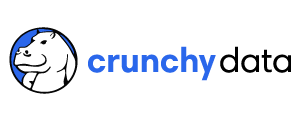
Interview with Chelsea Dole
Talks
- Managing Your Tuple Graveyard
- Thursday, 14:25
- Auditorium
Social Media
- Could you briefly introduce yourself?
I’m Chelsea Dole, and I currently work as a Senior Software Engineer at Brex, a remote-first fintech company. I am based in Seattle.
- How do you engage with the PostgreSQL Community?
I have worked with Postgres for several years now, and last year entered the liminal space between “software engineer” and “DBA”. I attended my first Postgres conference (PGConf.EU) in October, and was deeply inspired by the technical talks and the variety of ways that people were involved in the open source community. Previous to PGConf.EU, I believed that the primary (or only) way to be involved in open source was code contribution. This assumption was proven wrong, and I became very inspired by people who contribute to Postgres as mentors, writers, speakers, question-askers, and more. Since then, I have basically “jumped into the deep end of the pool”, so to speak. In the months since, I have gotten involved with PgUS, and this month I am speaking at three Postgres events in the U.S. and Europe. I hope to continue writing and speaking about technical topics which tickle my brain.
- What will your talk be about, exactly? Why this topic?
My talk is about understanding, quantifying, mitigating, and designing against table bloat. This topic is very near and dear to my heart, as I have dealt with a number of problematic DELETE and UPDATE-heavy databases over the years. I think table bloat is an excellent lens through which to learn about MVCC and Postgres internals, while still maintaining a clear tie to the application layer.
- What is the audience for your talk?
It is an intermediate level talk. For DBAs, it can serve as a refresher on MVCC, and introduce tooling for quantifying and mitigating table bloat. For developers, it will hopefully take some of the “mystery” out of Postgres internals, and give insight into designing bloat-aware applications and data access patterns.
- What is the one feature in PostgreSQL 15 which you like most?
I love the improvements to logical replication, specifically the ability to define conditional behavior for publishers!




